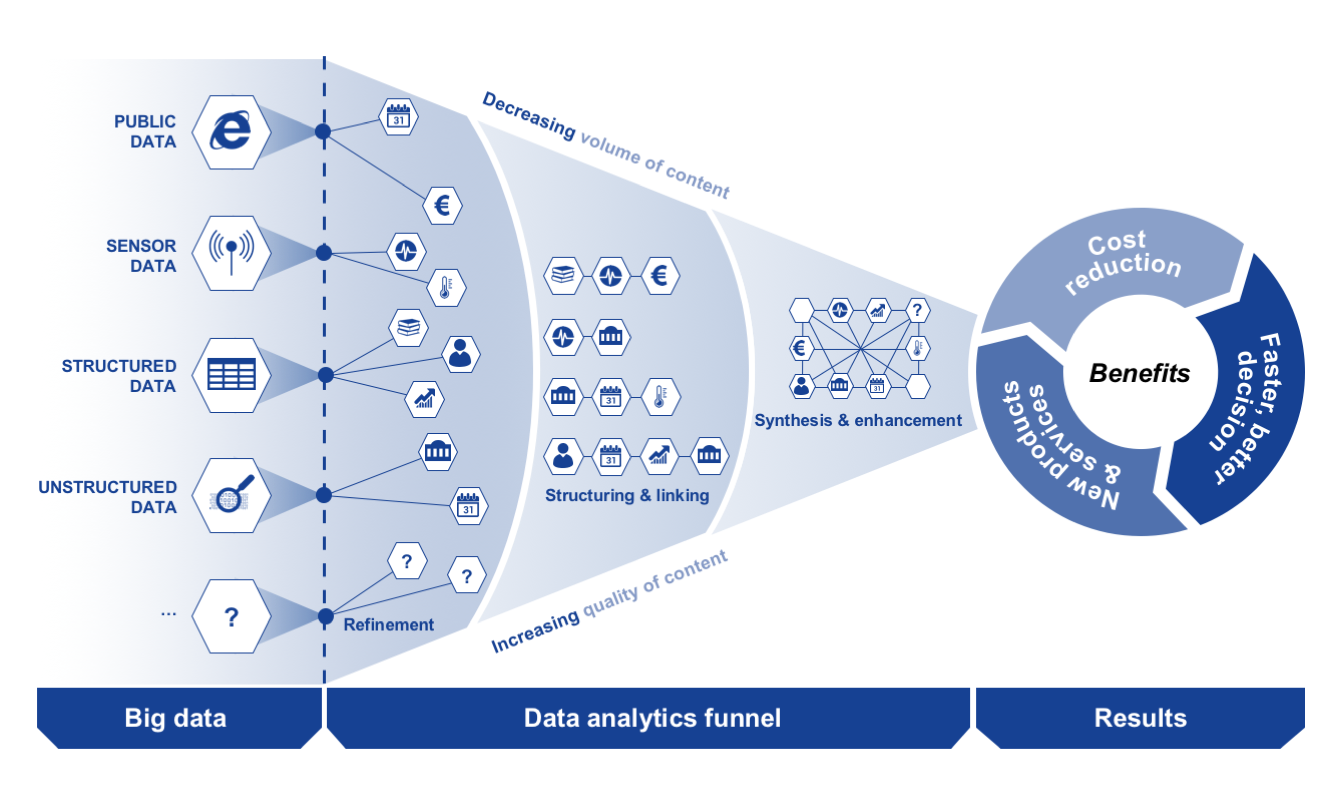Google's Gemini AI Begins Limited Rollout to Enhance Google Assistant on Nest Speakers
The smart home landscape is constantly evolving, driven by advancements in connectivity, device integration, and increasingly, artificial intelligence. For years, voice assistants like Google Assistant have served as the primary interface, allowing users to control lights, thermostats, play music, and get quick answers to simple queries. However, the advent of powerful large language models (LLMs) and generative AI has promised a new era of conversational intelligence, capable of understanding complex requests, providing detailed explanations, and even assisting with creative tasks.
Google has been at the forefront of this AI revolution with its Gemini models. Now, the company is taking a significant step towards integrating this advanced intelligence into the heart of its smart home ecosystem. In a move that signals the future direction of voice assistants, Google has begun a limited rollout of a Gemini-powered Google Assistant experience to a select group of users on specific Nest smart speakers.
This initial integration focuses on enhancing the Assistant's ability to answer general knowledge questions, leveraging the power of Gemini to provide more comprehensive and nuanced responses than the standard Assistant could previously offer. While the rollout is currently narrow in scope, it represents a crucial milestone in bringing generative AI directly into users' homes via familiar devices like the Nest Audio and Nest Mini.
The Dawn of a Smarter Assistant in the Home
For years, Google Assistant has been a staple in millions of homes, residing in smart speakers, displays, and mobile devices. Its capabilities have grown steadily, from setting timers and playing music to controlling a vast array of connected devices and executing complex routines. Yet, despite its utility, the standard Google Assistant has often felt limited in its conversational depth and ability to handle open-ended or complex informational queries. Its responses are typically concise, drawing from specific knowledge graphs or predefined scripts.
The rise of generative AI, exemplified by models like Google's own Gemini, has demonstrated the potential for AI to engage in more fluid, human-like conversations and synthesize information in novel ways. The vision of a truly conversational and intelligent home assistant, capable of understanding context, remembering past interactions, and providing detailed, insightful answers, has long been a goal for tech companies.
Google first hinted at a "smarter Google Assistant" powered by Gemini for the home back in August 2024. This announcement sparked excitement about the potential for Nest speakers and displays to become more capable conversational partners and more intuitive controllers for the smart home. The current rollout is the first tangible step in realizing that vision, specifically targeting the informational capabilities of the Assistant.
Gemini's Arrival on Nest Speakers: What's Happening Now?
The core of this initial rollout is the integration of Gemini's generative AI capabilities to handle general knowledge questions. When a user asks a question that falls into this category, the Assistant, if eligible for the Gemini enhancement, will process the query using the underlying LLM. Users will reportedly hear a distinct chime before the Assistant delivers its AI-powered response, differentiating it from standard Assistant replies.
According to Google's support documentation, the Gemini-powered Assistant on these Nest speakers can:
- Answer a wider range of general knowledge questions.
- Provide more in-depth and detailed answers.
- Allow for follow-up questions within the same conversational context.
- Be interrupted during its response to handle new queries.
This is a significant departure from the often brief and factual answers provided by the traditional Assistant. Imagine asking "Hey Google, explain the concept of quantum entanglement" and receiving a detailed, multi-paragraph explanation rather than just a quick definition from Wikipedia. Or asking "Hey Google, tell me about the history of jazz music" and getting a narrative overview covering different eras and key figures.
It's crucial to note that this Gemini integration is *not* replacing the standard Google Assistant entirely, at least not yet. The traditional Assistant will continue to manage core smart home functions, music playback requests, setting alarms, calendar entries, and other device-specific commands. The Gemini enhancement is specifically layered on top to handle the more complex, informational queries that benefit from generative AI's ability to synthesize and explain information.
Who Gets the Upgrade? The Specific Criteria
This rollout is far from a widespread update. Google has implemented a very specific set of criteria for who can access the Gemini-powered Assistant on their Nest speakers. This limited approach is typical for testing significant new features, allowing Google to gather feedback and identify potential issues before a broader release.
To be eligible for this experimental Gemini experience, users must meet *all* of the following conditions:
-
Own a Compatible Device: The feature is currently only available on the Nest Audio and the Nest Mini (2nd generation) smart speakers. Older Google Home speakers, Nest Hub smart displays, and other Assistant-enabled devices are not included in this initial phase.
-
Be a Member of the Google Home Public Preview: The Google Home Public Preview program allows users to test upcoming features and provide feedback before they are released to the general public. Enrollment in this program is necessary.
-
Be a Nest Aware Subscriber: Nest Aware is Google's subscription service for Nest cameras and doorbells, offering features like extended video history, intelligent alerts, and activity zones. Requiring a Nest Aware subscription for access to a feature primarily focused on general knowledge answers might seem counterintuitive, but it could be part of Google's strategy to tie advanced AI features to its premium services or target a more engaged user base for testing.
-
Opt-in to Experimental AI Features (by invitation): Even if a user meets the first three criteria, they must also receive a specific invitation within the Google Home app to opt into "Experimental AI features." This indicates that the rollout within the Public Preview and Nest Aware subscriber base is further segmented, targeting a smaller, hand-picked group for the earliest testing phase.
Users who are selected for the Experimental AI features will receive a notification in their Google Home App inbox. This notification will include a toggle switch allowing them to enable the feature and begin testing the Gemini-powered Assistant responses.
The strictness of these requirements highlights that this is a very early-stage test. Google is likely prioritizing a specific user profile – those already invested in the Google Home ecosystem (Public Preview), potentially more technically inclined (Public Preview), and paying subscribers (Nest Aware) – to ensure robust testing and feedback collection in a controlled environment. The phased, invitation-only opt-in for Experimental AI features further refines this testing group.
Beyond General Knowledge: Other AI Features in the Pipeline
The Gemini-powered general knowledge answers are just one piece of Google's broader strategy to infuse generative AI into the smart home. The August announcement also teased other AI-driven features that are part of the "Experimental AI features" bundle accessible to the selected users:
-
Gemini-powered Camera Search and Descriptions: For users with Nest security cameras and a Nest Aware Plus subscription, Gemini can help filter through camera footage more effectively. Instead of scrubbing through hours of video, users might be able to ask the Assistant to "show me clips where a person was at the front door yesterday afternoon" or "find the video where the delivery truck arrived." Gemini's understanding of context and objects could make searching through security footage significantly easier and faster.
-
"Help me create" Routines: Google Home routines allow users to automate multiple actions with a single command or trigger (e.g., saying "Good morning" turns on lights, plays news, adjusts the thermostat). The "Help me create" feature aims to simplify routine creation using natural language. Instead of manually configuring each step, users could describe the desired outcome, such as "Clock the doors and turn off the lights at bedtime," and Gemini would interpret the request and suggest or create the appropriate routine automatically. This leverages generative AI's ability to understand intent and translate it into actionable steps within the smart home framework.
These additional features, tied to the same Experimental AI opt-in, demonstrate Google's ambition to use generative AI not just for answering questions but for enhancing core smart home functionalities like security and automation. The requirement for Nest Aware Plus for the camera search feature further reinforces the idea that some of the more advanced AI capabilities might be linked to premium subscription tiers.
The Smart Home AI Race: Google Takes the Lead (For Now)
The smart home market is a fiercely competitive arena, with Google, Amazon, and Apple vying for dominance. Voice assistants are central to their strategies, serving as the primary user interface and control hub.
Amazon was arguably the first to make significant noise about integrating generative AI into its voice assistant, Alexa. At its annual devices event in September 2023, Amazon unveiled a "smarter Alexa" powered by a new LLM, promising more natural conversations, better context retention, and enhanced capabilities. However, despite the announcement, a widespread rollout of these advanced features has been slow to materialize. As of late 2024, the full suite of promised generative AI features for Alexa is still largely unavailable to the general public, with reports suggesting delays into 2025.
Apple, while integrating its "Apple Intelligence" AI features into Siri on iPhones, iPads, and Macs, has been notably quiet about bringing these capabilities to its smart home devices, specifically the HomePod smart speakers and Apple TV. Apple Intelligence is currently focused on personal computing tasks and is not supported on its home-based voice-forward devices.
In this context, Google's limited but public rollout of Gemini-powered general knowledge answers on Nest speakers positions them as the first of the "big three" to demonstrably bring generative AI enhancements to their smart home voice assistant in a user-facing capacity, even if restricted to a small test group. While Amazon announced first, Google appears to be the first to get a version of the technology into users' hands (or rather, ears).
This early lead, however small, could be strategically important. It allows Google to gather real-world data, refine the user experience, and potentially steal some of the thunder from its competitors who have yet to deliver on their generative AI promises for the smart home.
The User Experience: What Changes?
For the select users who gain access to the Gemini-powered Assistant, the most noticeable change will be the quality and depth of answers to their general knowledge questions. Instead of a concise, factual snippet, they might receive a more detailed explanation, a summary of different perspectives, or even a short narrative.
The ability to ask follow-up questions is a key benefit of LLM integration. With the standard Assistant, asking a follow-up often requires repeating context or starting a new query. A Gemini-powered Assistant should be able to maintain the context of the conversation, allowing users to delve deeper into a topic naturally.
The ability to interrupt the Assistant's response is also a welcome improvement. Currently, if the Assistant is giving a lengthy answer, you often have to wait for it to finish before issuing a new command. Being able to interrupt allows for a more fluid and less frustrating interaction.
However, the requirement to still say "Hey Google" for each interaction remains. While some envisioned a future where the smart speaker is always listening for conversational cues without a wake word, this initial integration retains the standard activation method. This is likely a practical decision related to processing power, privacy considerations, and the complexity of implementing a truly free-flowing, always-on conversational mode.
The distinct chime before a Gemini-powered response is a clear indicator to the user that they are receiving an AI-enhanced answer. This transparency is important, especially as generative AI can sometimes produce inaccurate or nonsensical information. Knowing when the LLM is engaged might help users temper their expectations or critically evaluate the information provided.
Implications and the Road Ahead
This limited rollout, while small, has significant implications for the future of Google Assistant and the smart home:
-
Testing the Waters: Google is using this as a crucial testing phase to understand how users interact with a more conversational AI in the home, identify potential issues (accuracy, latency, user confusion), and refine the integration before a wider release.
-
Setting Expectations: By starting with general knowledge questions, Google is introducing Gemini's capabilities in a relatively low-risk area compared to critical smart home controls. This helps set user expectations about what the AI is capable of in this initial phase.
-
Strategic Positioning: Being the first to market with a public generative AI integration in the smart home, even limited, allows Google to claim an early lead and gather valuable data ahead of competitors.
-
Future Expansion: If successful, this initial rollout will pave the way for integrating Gemini's capabilities into more complex smart home tasks, potentially leading to more intuitive control, proactive assistance, and personalized experiences.
-
Hardware Requirements: The limitation to Nest Audio and Nest Mini (2nd gen) suggests that the processing power required for running or accessing the Gemini model effectively might be higher than what's available on older devices or even smart displays, which have different processing architectures.
-
Subscription Tie-ins: The Nest Aware requirement hints at the possibility that some advanced AI features might become part of Google's subscription offerings, creating a tiered system of smart home intelligence.
The "Help me create" routines feature, also part of this experimental bundle, is particularly exciting for the smart home. Simplifying the setup of complex automations using natural language could significantly lower the barrier to entry for users who find current routine interfaces cumbersome. This moves the smart home closer to a system that understands user intent rather than requiring precise command structures.
Challenges and Considerations
Despite the promise, integrating generative AI into the smart home comes with challenges:
-
Accuracy and Hallucinations: LLMs can sometimes generate incorrect or fabricated information (hallucinations). While less critical for general knowledge, ensuring accuracy is paramount if Gemini is eventually used for more sensitive tasks like providing health information or controlling critical devices.
-
Privacy: Processing more complex, conversational queries raises privacy considerations. Users need to trust that their interactions are handled securely and responsibly.
-
Latency: Generating detailed responses using an LLM can take longer than fetching a quick fact. The speed of response is crucial for a voice assistant experience; delays can be frustrating.
-
Complexity of Rollout: The current, highly specific eligibility criteria are complex and limit access significantly. Expanding this to a broader audience while managing performance and ensuring a consistent experience will be a challenge.
-
User Understanding: Users need to understand when they are interacting with the standard Assistant versus the Gemini-powered version, especially if the capabilities differ. The chime is a good start, but clear communication is key.
-
Maintaining Core Functionality: It's essential that the integration of Gemini doesn't negatively impact the reliability and speed of the core smart home control functions that users rely on daily.
Google will need to carefully navigate these challenges as it expands the Gemini integration. The limited rollout is likely designed to identify and address many of these issues in a controlled environment.
Conclusion: A Glimpse into the Future
Google's decision to bring Gemini's generative AI capabilities to select Nest speakers, even in a limited experimental phase, is a pivotal moment for the smart home. It signifies a clear commitment to evolving voice assistants beyond simple command-and-control interfaces towards more intelligent, conversational, and helpful AI companions.
While access is currently restricted to a small subset of users meeting specific criteria (Nest Audio/Mini 2nd gen, Google Home Public Preview, Nest Aware, Experimental AI opt-in), this initial step provides a tangible glimpse into the future of Google Assistant. The ability to ask complex questions and receive detailed, AI-powered answers on a smart speaker opens up new possibilities for using these devices for learning, research, and more engaging interactions.
The inclusion of other experimental features like AI-powered camera search and routine creation using natural language further illustrates Google's vision for a smart home that is not just automated but truly intelligent and intuitive. As Google gathers feedback from this early test group, we can expect to see refinements and potentially a broader rollout to more devices and users in the future.
The race to integrate advanced AI into the smart home is heating up. While Amazon and Apple have their own plans, Google's public deployment, however limited, gives it an early advantage in learning and adapting. The success of this initial phase will be crucial in determining the pace and scope of future AI integrations, ultimately shaping how we interact with our homes in the years to come. For now, a select few Google Home users are getting a first taste of a smarter, Gemini-boosted future for their Nest speakers.


















